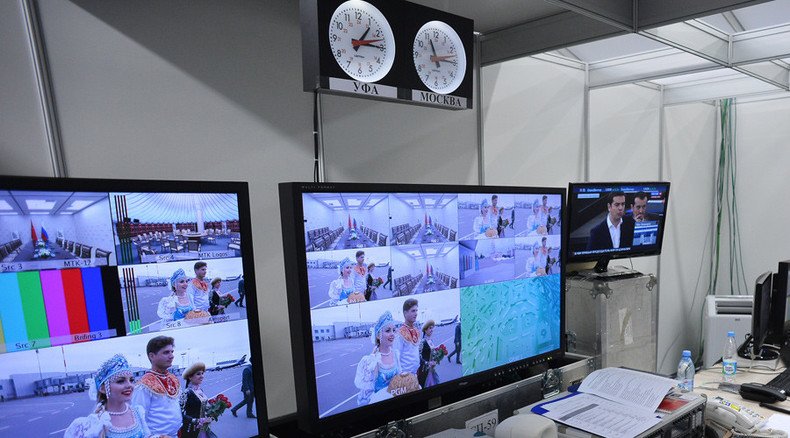Opposition MPs call for all Russian media to report foreign funding

A fresh bill drafted jointly by all opposition parliamentary parties requires Russian media to inform the state watchdog about any money received from foreign sources, or face fines and closure.
According to popular business daily Kommersant, the bill provides for amendments to the Russian Law on Mass Media and the Administrative Code, and orders all companies registered as mass media outlets to report any financing from foreign sources within a 30-day period. Violation of this rule would lead to confiscation of the sum received from abroad and fines of between 30,000 and 50,000 roubles ($470-$780) levied on the top managers of the media company. Repeated violations would lead to a court ruling revoking the mass media license of the company.
The demands do not apply to money received for advertising.
“Currently, certain countries are increasing their pressure on the Russian mass media through economic leverage, oppressive agencies and so-called ‘rulings of judicial bodies.’ At the same time, we see attempts to directly influence the Russian information space through extending foreign grants to Russian mass media in order to cause biased reporting and create a distorted picture of political reality,” the explanatory note attached to the draft bill says.
READ MORE: President orders limit on foreign ownership in Russian mass media
“If someone transfers money from abroad, our citizens must know about it. There is a lot of negative information about Russia right now. I am not against objective coverage, but when they start to inflate tensions it becomes bad,” said one of the MPs who drafted the bill, Vadim Kharlov, of the center-left Fair Russia party.
Communist Party MP Aleksandr Yushchenko dismissed allegations that the new bill could become a censorship tool and noted that it was important to oppose the bias of certain lobbying groups that use money to attract journalists to their side. “Information is not just traded goods, it is a weapon and we must remember this,” he said.
READ MORE: New bill equates popular bloggers to mass media
The new bill is similar to the Russian “Law on Foreign Agents” introduced in 2012, which orders all NGOs engaged in politics and receiving any funding from abroad to register as foreign agents or risk substantial fines. Groups with “foreign agent” status are banned from sponsoring Russian political parties, but otherwise their activities are not restricted.
The Foreign Agents Law caused a lot of controversy and protests since its preparatory stage. Russian and international NGOs have criticized the new law as discriminatory and contested it in Russian courts and in the European Court of Human Rights, but with no result. The sponsors of the act and top Russian officials have repeatedly emphasized that its main purpose was to provide better information for voters that would eventually benefit democracy.
Earlier this month, President Vladimir Putin allowed for some corrections to the NGO foreign agents law, but said that they would concern more precise definitions of the terms used in it with the general scheme left intact.
READ MORE: Putin promises amendments to controversial ‘foreign agents law’











